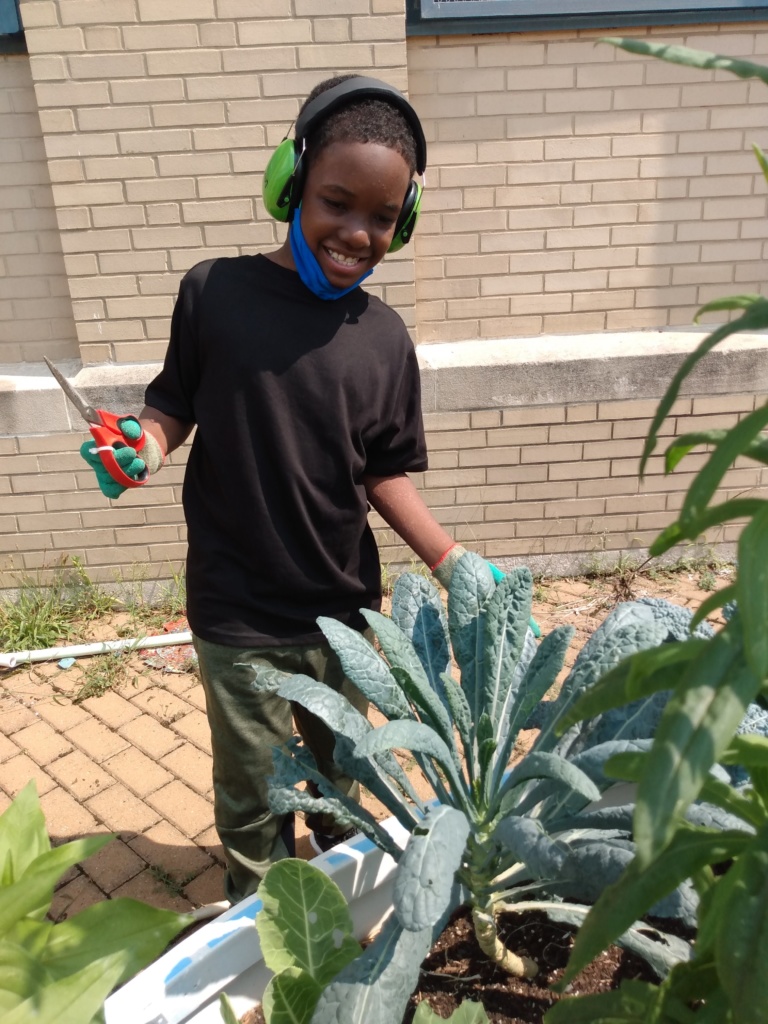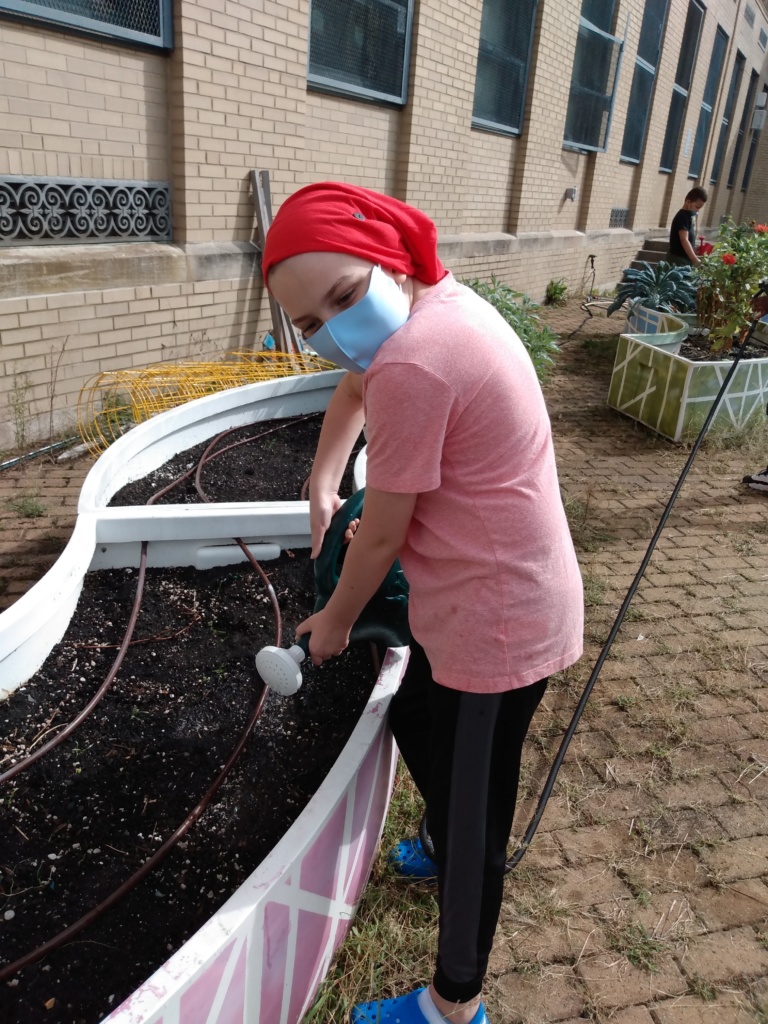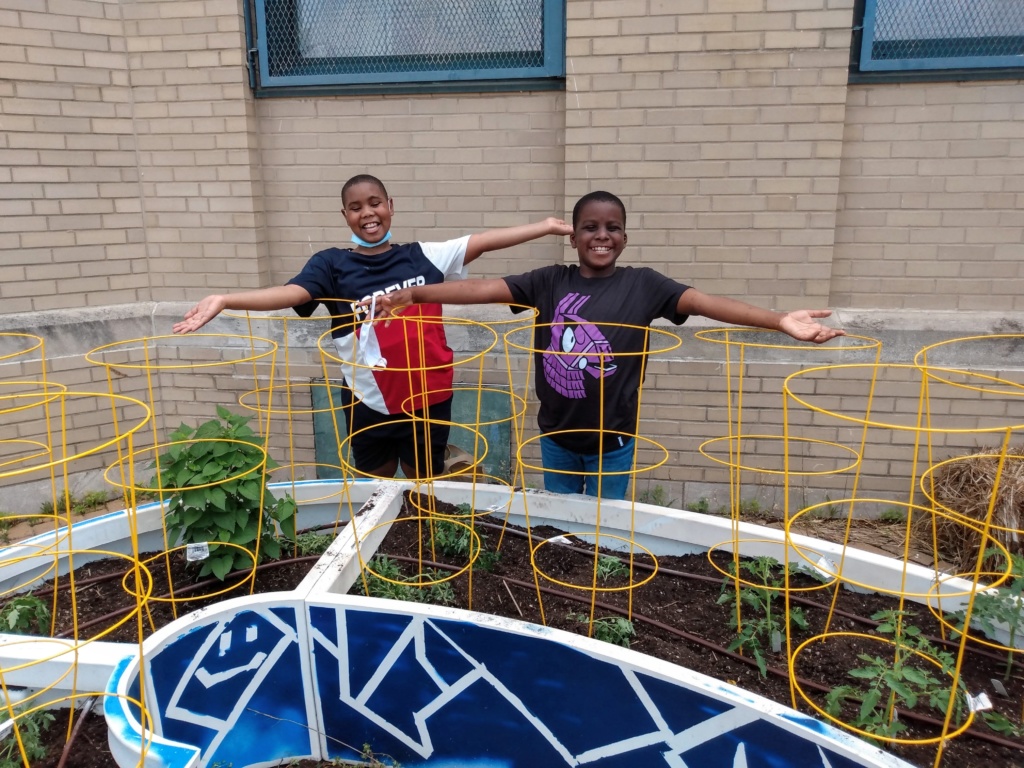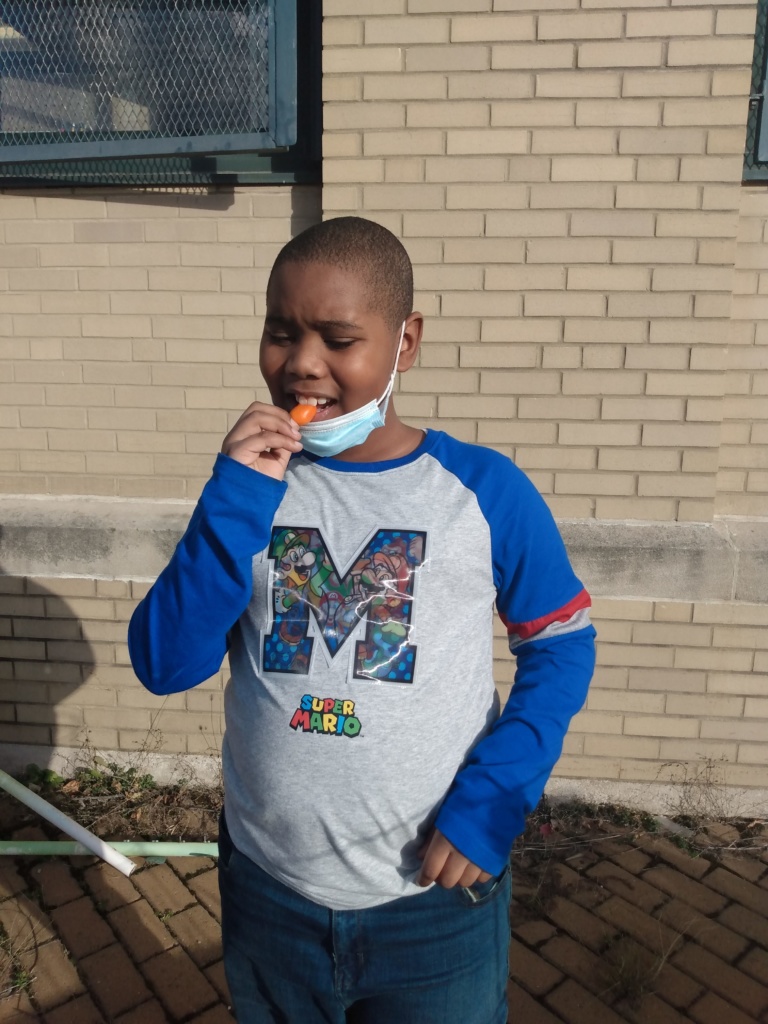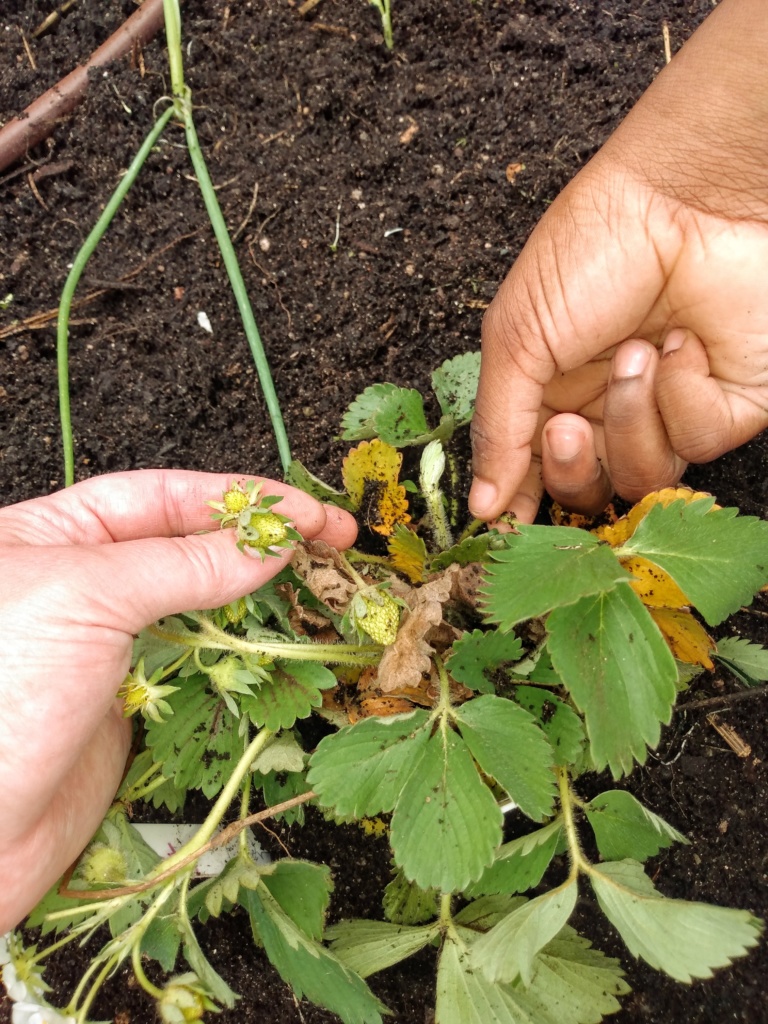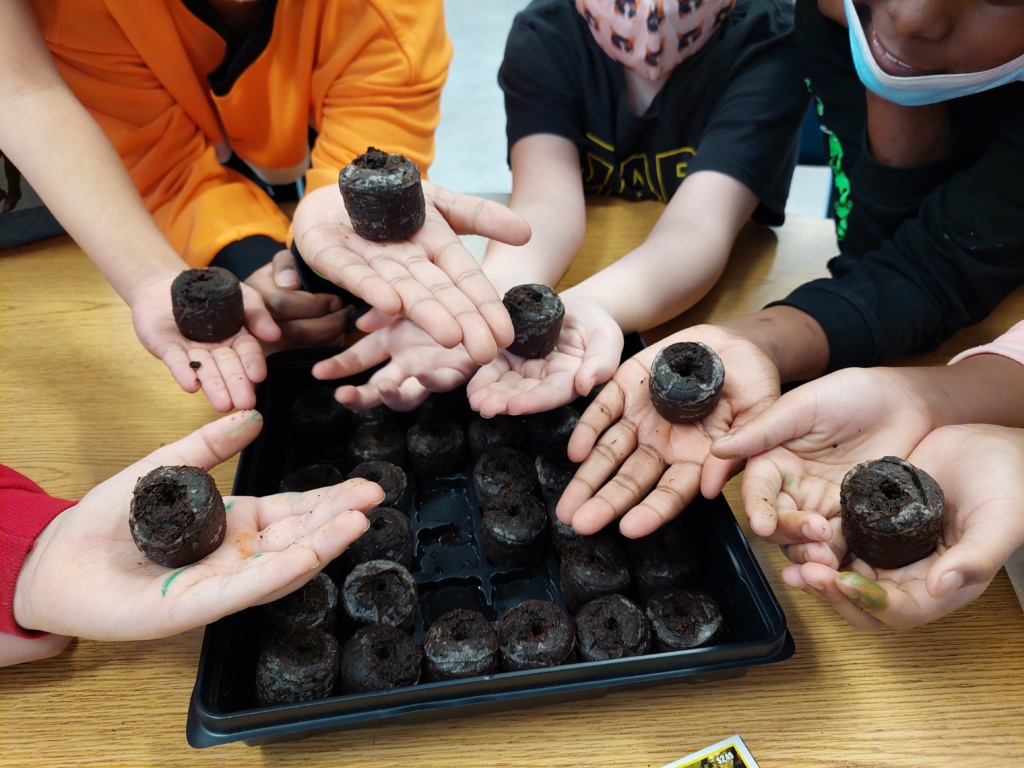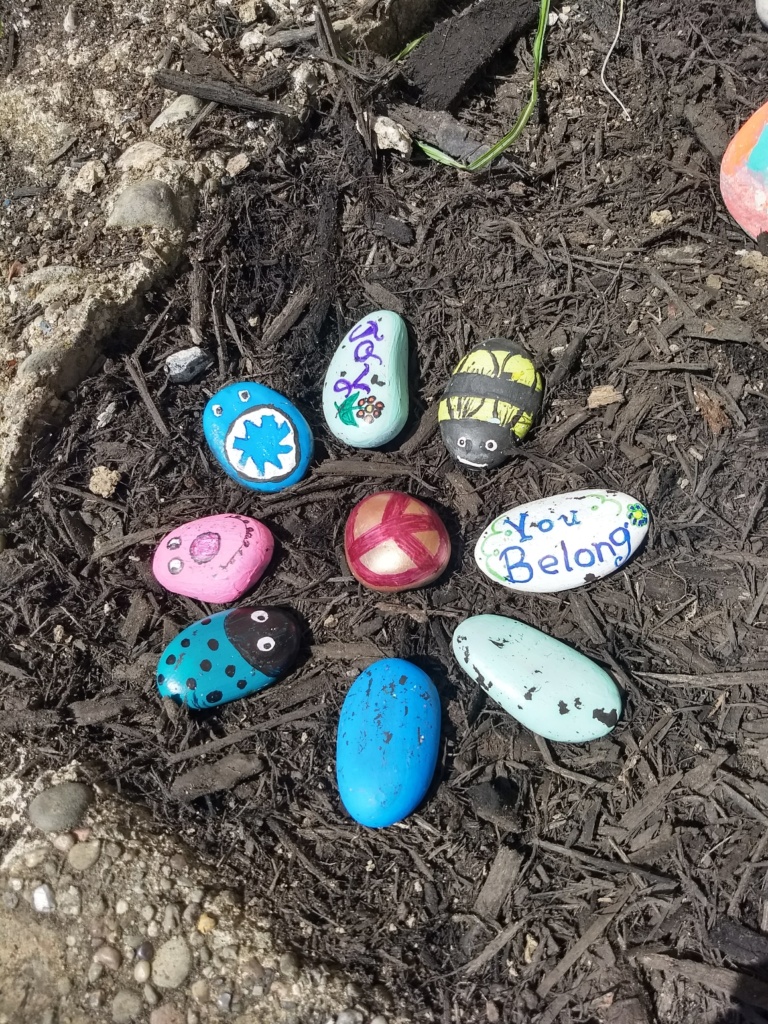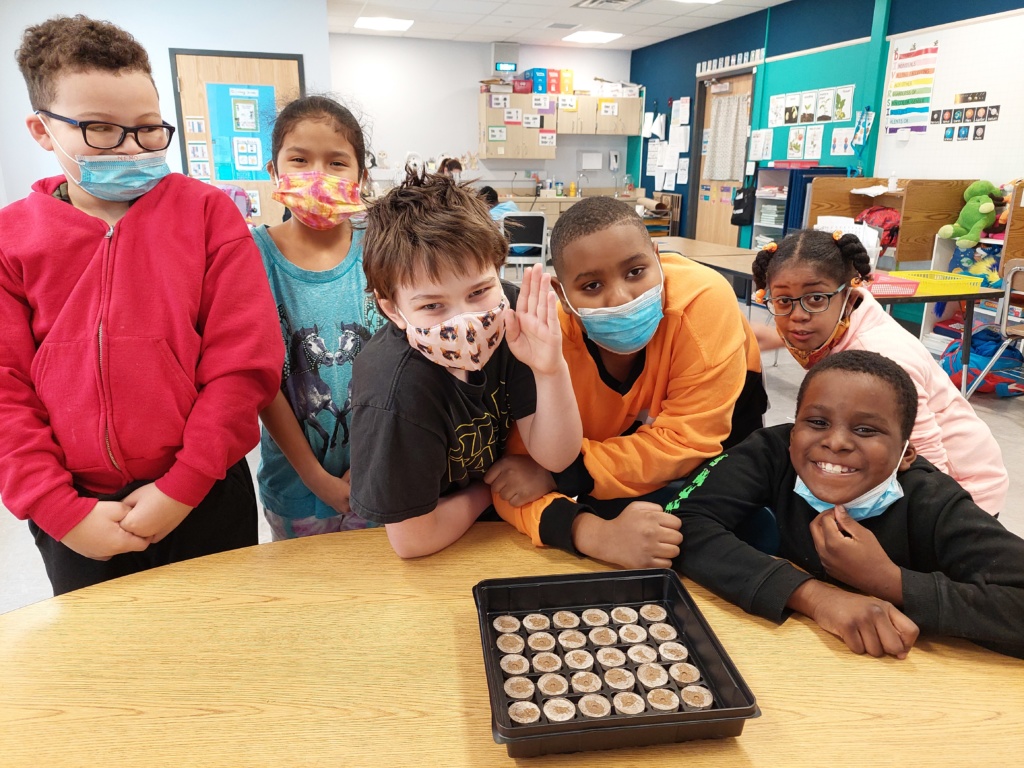In this month’s grower’s spotlight we hear from Rachel Romano, an autistic support teacher who also manages the school garden at West Liberty Elementary School. Rachel has been a long-time gardener herself and transferred that passion to her school garden where she works tirelessly to provide gardening opportunities for her students. She radiates passionate energy and shares why growing food and learning throughout the process is critical for her students. In this Spotlight, hear from Rachel on how she and her students have completed fun projects in their school garden and watch her interview with KDKA. In the end, check out the pictures of the students hard at work!
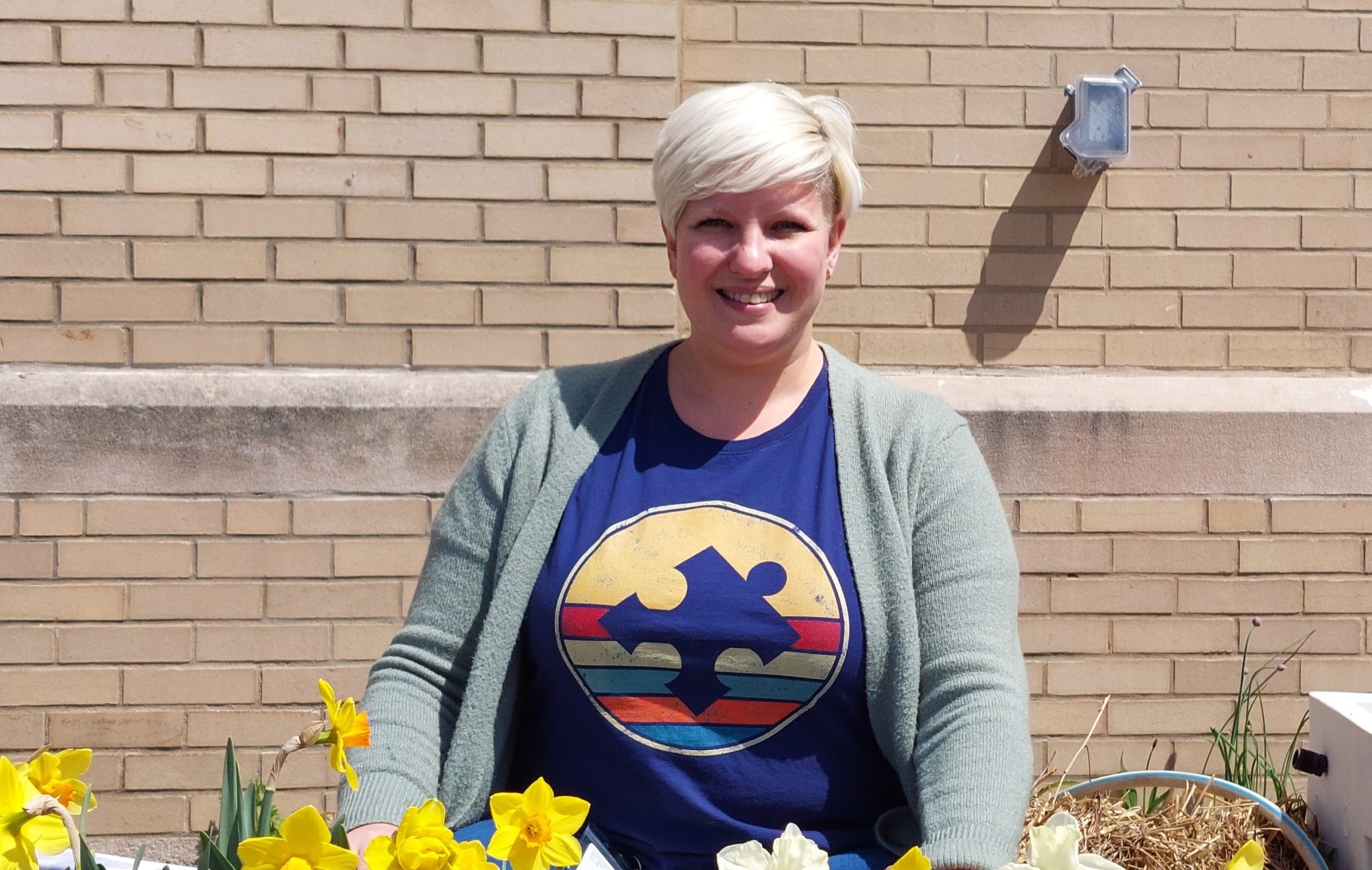
Grow Pittsburgh: Tell us a little bit about yourself?
Rachel: I grew up in the country. My grandfather had a farm and my parents always had their own garden growing vegetables and perennials. When I moved to Pittsburgh, as an adult, I began my own gardening experiences when my husband and I bought our house. I’ve been an avid gardener for 22+ years. I enjoy working with my hands in the garden and creating new spaces with rocks, flowers, trees, and shrubs. Gardening is a way to connect to the natural world which I find both challenging and rewarding.
GP: How did you get involved in your school’s garden?
Rachel: As a community leader, I helped to establish a community garden in my neighborhood where I volunteered as the coordinator for many years. Through those efforts I worked with Grow Pittsburgh for sustainability grants and resources, Pittsburgh Cares for volunteer efforts and Tree Pittsburgh as a tree tender. These experiences heightened my awareness of my love of gardening with children! When I came to West Liberty I was thrilled to see that our school was getting a learning garden. Coming with the background knowledge of working with volunteer groups and children in the community garden, it was a natural progression for me to work with students in the school garden.
GP: What impact does a school garden have on your students? What brings the most joy to your students when they are out in the garden?
Rachel: I have witnessed my students grow academically, socially and behaviorally, because they don’t want to lose the opportunity to garden. They know their academic work comes first, and then we can do the fun stuff like gardening! Over the years we have done garden yoga, blind taste testing of different vegetables and fruits (which was a LOT of fun), scavenger hunts, and watched the life cycle of plants from seed to harvest. They are amazed at everything they observe in the garden. We had a very large praying mantis this fall that was entertaining to watch and a black swallowtail caterpillar munching on our parsley. This spring we observed the garlic poking its tops from the soil, the daffodils covered in snow, and the strawberry plants enjoying some warm spring sunshine. Gardening also has a calming effect. A walk around the school grounds to enjoy all that nature has to offer can be very relaxing and peaceful. Students love to look at the budding trees, smell the flowers, enjoy a bite of a juicy tomato or watch bees and butterflies have a snack of pollen and nectar.
This fall, on the first day of school we went to the garden to harvest produce and all the students went home with bags filled with tomatoes, peppers, herbs, and fresh-cut flowers. One student exclaimed, “Look, I am a farmer!” Not only do they benefit from the fresh air and physical activity, but working in the garden has helped several students improve their work ethics and increase their confidence. I never imagined that I would see third, fourth, and fifth graders working in the cold fall air while they unloaded a truckload of fresh topsoil into the garden beds. I am proud of their growth, but they are equally proud of themselves.
GP: What is your favorite thing to grow?
Rachel: I am a flower lover! My own flower gardens at home are my pride and joy. At school I love to grow tomatoes and basil – I just love the smell of herbs. The students really love munching on chives or tomatoes fresh from the garden.
GP: What are some projects that your students have done with the things you have grown in the garden?
Rachel: Before Covid we did a lot of classroom cooking, but due to lack of funding, we aren’t able to cook anymore. We currently have a greenhouse in our classroom with lettuce, basil, milkweed, zinnias, and tomatoes growing. It is really fun to watch them as they notice a new leaf unfurl on a seeding or the shell of a seed crack open. Surprisingly, they really enjoyed the task of taking out sunflower seeds from the harvested sunflower heads which to me is a very unpleasant task. We also observed bees pollinating flowers and we could see their pollen sack which we had just learned about. It is really fun to see students making real life connections and sharing their knowledge with others. We recently accepted a grant from Captain Planet to support additions to our pollinator garden!
GP: What was your proudest moment as a teacher?
Rachel: My proudest moment since I began playing an active role in the school’s garden is the social experiences my students get from gardening. They love teaching other students about their gardening knowledge and being leaders in the garden when other students join us. Gardening is an inclusive activity that any student can do. In April, one of my students and I were interviewed by KDKA for In Your Neighborhood where they highlighted the school garden, our greenhouse, and all that West Liberty has to offer.
GP: What challenges have you faced within your school gardening work?
Rachel: One of the most challenging times was during Covid, our school was also under construction. Even though students were learning remotely, I grew all of the vegetables from seed, planted them, and watered them all summer so that when the students came back to school they would see that the garden was still growing and alive.
Another challenge is being the only educator in my school that really uses the garden – we don’t have a school garden community to coordinate ideas with. It would be beneficial if the school had a garden committee. I write all of the grants myself to overcome funding hurdles. This month we received approval of our Project Hero – Pollinator Quest Proposal from Captain Planet Foundation. The students are very excited to plant native pollinator-friendly plants in May!
GP: Do you have advice for fellow educators on how a school garden can be impactful in the learning of their students?
Rachel: I have encountered colleagues saying that they have a black thumb and know nothing about gardening. You don’t have to be an expert! We all learn through our experiences and as long as you are willing to learn and expose yourself to new things you will learn along with the students! Every growing year I learn many new things.
GP: Amongst Grow Pittsburgh’s values, which one resonates with you the most in your work?
Rachel: As an autistic support teacher, equity is very important to me. Gardening is a great way to include students of differing abilities and backgrounds.
GP: How has Grow Pittsburgh impacted your journey in becoming a Gardener?
Rachel: Grow Pittsburgh has been an amazing partner and resource. I love that you have lesson plans by season or by crop which educators can use in their classrooms as an extension to science.
Students at the school garden
Do you know another local grower you’d like to see in the Grower’s Spotlight? Maybe it’s you! Drop us a line to be featured in our next newsletter or on our blog.

